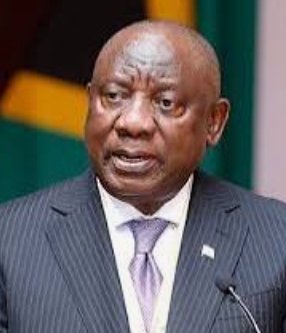South Africa faces political tension over a proposed VAT hike, with the DA opposing it as harmful to the poor, while the ANC defends it as necessary to reduce the budget deficit.
South Africa’s VAT Dispute Goes to Court Ahead of Implementation Deadline


The South African government remains entangled in a heated tax dispute between the ruling African National Congress (ANC) and the Democratic Alliance (DA). The DA has taken legal action against the government, seeking to block the proposed 0.5% increase in Value Added Tax (VAT), which would raise the rate from 15% to 15.5%. This increase is scheduled to come into effect on May 1st.
According to the South African government, the VAT hike is a necessary measure to help close the country’s budget deficit, currently estimated at R13.5 billion. However, the Democratic Alliance — which entered into a power-sharing agreement after the ANC lost its parliamentary majority for the first time in three decades — has firmly opposed the increase. The party argues that the tax hike would disproportionately affect the poor, who make up the majority of the population.
VAT in South Africa is levied on a wide range of goods and services, including essential items such as food and electricity. The proposed increase has drawn criticism from opposition parties and civil society organizations, who describe the budget as anti-poor and regressive.
South Africa’s latest budget highlights the nation’s fragile socio-economic landscape, with more than 20 million citizens dependent on welfare grants and the unemployment rate exceeding 32%. The government projects that the VAT hike will generate over 15 billion rand (approximately $800 million) in annual revenue to support crucial programs in health, education, and social services.
Additionally, the budget had to be adjusted to account for foreign aid reductions following recent policy changes by the new U.S. administration. This fiscal realignment adds further strain to the country’s already pressured financial planning.
This VAT dispute marks yet another significant clash between the ANC and the DA since last year’s general election, in which the ANC suffered its worst electoral performance in history. The two parties remain divided on several core issues, including foreign policy, land reform, and reforms to the education and healthcare sectors.
In a surprising political twist on Wednesday, ActionSA — a smaller party not part of the unity government — cast decisive votes that enabled the ANC to secure passage of the contested budget.

 বাংলা
বাংলা  Spanish
Spanish  Arabic
Arabic  French
French  Chinese
Chinese 
